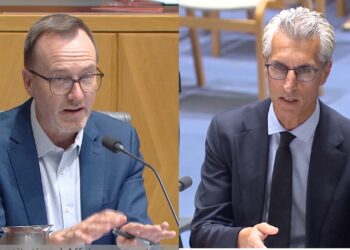In an unprecedented move, the Australian government has proposed legislation that would prohibit individuals under the age of 16 from accessing social media platforms. This groundbreaking initiative, aimed at protecting young users from the potential harms of digital platforms, has been described as a world-first, drawing both praise and criticism from around the globe. With implications for privacy, mental health, and internet freedom, the proposed laws are shaping up to be one of the most controversial tech-related policies in recent years.
Overview of the Legislation
The proposed legislation seeks to make it mandatory for social media platforms to implement measures preventing children under 16 from signing up for accounts. Major platforms, including Facebook, Instagram, Snapchat, Reddit, and X (formerly Twitter), will be required to comply. Companies that fail to meet these requirements could face fines of up to AUD 49.5 million.
Australian Communications Minister Michelle Rowland explained that the law includes a minimum 12-month lead-in period to allow platforms time to develop and implement the necessary systems. The government, however, has placed the onus of enforcement on social media companies, stating that no national digital ID system will be introduced to enforce the ban.
Minister Rowland emphasised that this legislation is designed to address growing concerns about the mental health impacts of social media on young Australians. “This is a necessary step to safeguard the next generation,” she said during the announcement.
Privacy Concerns and Age Verification Technology
One of the most contentious aspects of the proposal lies in the methods that platforms will need to employ for age verification. During a Senate Committee hearing, it was revealed that all users—not just children—would be required to verify their age to access social media. James Chisholm, Deputy Secretary of Communications and Media at the Department of Infrastructure, Transport, Regional Development, Communications, and the Arts (DITRDCA), confirmed this, stating that “everybody” would need to go through an age-checking process.
The age-verification technologies currently under trial include methods such as keystroke analysis, facial recognition, and question-based assessments. However, Chisholm admitted that these technologies are still in development and are only “reasonably accurate.” Critics argue that their implementation could compromise user privacy and security. Greens Senator David Shoebridge raised concerns, stating, “This will affect every Australian, not just children. We need to consider the implications this could have on data privacy and misuse.”
Exemptions and Enforcement Challenges
While the legislation targets social media platforms broadly, certain services will be exempt. Platforms like Messenger Kids, WhatsApp, Kids Helpline, Google Classroom, and YouTube, which are categorised as health or education-focused services, will not fall under the ban. The exclusion of these platforms is designed to ensure that the law does not inadvertently block access to essential resources for young users.
Despite these exemptions, enforcing the legislation is expected to be a significant challenge. The government has left it to social media companies to decide how to verify users’ ages while meeting privacy expectations. Critics within the tech industry have questioned the feasibility of implementing reliable age-verification systems without infringing on user privacy. Concerns have also been raised about the potential for such measures to create a de facto digital ID system, something the government has explicitly denied as a goal.
International and Domestic Reaction
The legislation has triggered a wave of reactions, both supportive and critical, from within Australia and abroad. Internationally, figures like Elon Musk, owner of X, have voiced strong opposition. Musk described the move as a “backdoor way to control access to the internet by all Australians.” Free speech advocates, such as Michael Shellenberger, have also warned that the proposal could lead to a “totalitarian dystopia,” where governments use similar measures to restrict internet freedoms globally.
Domestically, the response has been mixed. While many parents and child advocacy groups support the legislation as a necessary step to protect young people from the harmful effects of social media, others have raised concerns about privacy and enforcement. Nationals Senator Bridget McKenzie, a staunch supporter of the bill, has called for the measures to be implemented even sooner than the proposed 12-month timeline. Citing incidents of bullying, exposure to violent content, and mental health issues among Australian youth, McKenzie stated, “We cannot act quickly enough because there is a tsunami of mental health issues occurring right now.”
Balancing Mental Health and Privacy
The government’s proposal comes in response to mounting evidence of the negative impact social media can have on young people. Studies have linked excessive use of social media to issues such as anxiety, depression, and low self-esteem among teenagers. By introducing this ban, Australia aims to curb these harmful effects and promote healthier digital habits.
However, privacy advocates argue that the proposed measures could infringe on the rights of all users, not just children. They warn that the universal age-verification requirement could lead to widespread data collection, increasing the risk of breaches and misuse. These concerns have been amplified by revelations that the technology needed to enforce the ban is not yet fully reliable.
The debate has highlighted a critical question: how can governments protect young people in the digital age without compromising the privacy and freedoms of the broader population? This balancing act will be central to the legislation’s success or failure.
Implications for the Global Digital Landscape
If enacted, Australia’s age-verification legislation could set a global precedent. Other countries grappling with the challenges of regulating social media may look to Australia as a model—or a cautionary tale. The law’s implementation and its consequences will likely influence future debates on internet governance and digital privacy worldwide.
Supporters argue that the legislation represents a necessary evolution in how societies manage the digital world, particularly for vulnerable populations. Critics, however, fear it could lead to a slippery slope, where governments increasingly intervene in online spaces under the guise of protection.
Next Steps
As the legislation moves through the parliamentary process, it will face further scrutiny and debate. The government has pledged to consult with various stakeholders, including tech companies, privacy experts, and mental health professionals, to address concerns and refine the bill. The outcome of these consultations will be critical in determining the final shape of the law.
In the meantime, social media companies will need to prepare for the potential implementation of the ban. This includes developing and testing age-verification technologies, which may require significant investment and innovation.
The Road Ahead
Australia’s proposed social media ban for individuals under 16 represents a bold and controversial step in regulating digital platforms. While it seeks to address urgent concerns about the mental health impacts of social media, it also raises complex questions about privacy, enforcement, and the future of internet freedom. As the world watches closely, the outcome of this legislation will undoubtedly have far-reaching implications for how societies navigate the challenges of the digital age.











